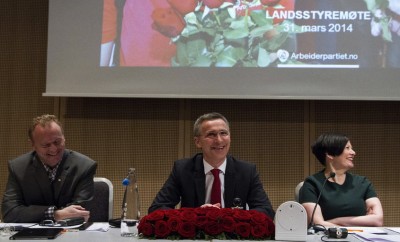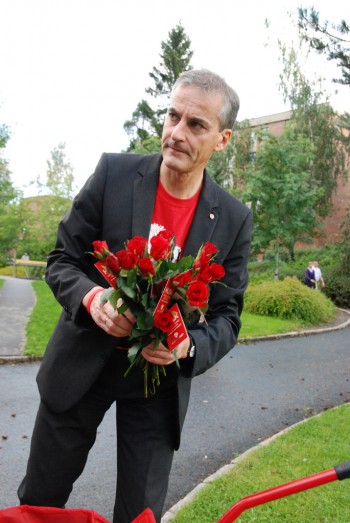The Norwegian Labour Party, faced with losing its popular longtime leader and prime minister candidate Jens Stoltenberg, decided on Monday that it will hold a new extraordinary national meeting in June with just one item on the agenda: Election of a new leader to replace him.

Speculation over the leadership of Norway’s largest political party, which currently holds around 34 percent of the vote, started brewing as soon as news broke earlier this month that Stoltenberg was a top candidate to take over as secretary general of NATO. On Friday NATO’s ambassadors chose Stoltenberg to be their top civilian leader and he’ll take over his new post in Brussels on October 1.
Stoltenberg will continue as Labour Party leader, a post he’s held for the past 13 years, until his successor is elected at the extraordinary meeting set for June 14. Jonas Gahr Støre, a close ally of Stoltenberg’s who’s long been viewed as Labour’s “crown prince,” is widely favoured to succeed him as party leader and prime minister candidate in 2017.

No other leadership changes will be made until the next scheduled national meeting in 2015, when deputy party leader Helga Pedersen and party secretary are up for re-election. Pedersen made it clear on Monday that she won’t be a candidate for party leader.
“I was elected as deputy leader at the last national meeting and it’s a role I’m thriving really, really well in,” Pedersen told Norwegian Broadcasting (NRK). “It’s also in that role that I want to continue.”
Raymond Johansen is also expected to continue in his post until next year, with several media commentators predicting the party will opt for stability in the wake of Stoltenberg. Next year, though, Støre may get some competition from Trond Giske, Labour’s former trade minister, although Støre’s position as leader is widely seen as assured as long as he wants it. Giske said on Monday that he won’t challenge Støre for the party’s leadership post in June.
The post of deputy leader would thus go to a woman, according to Labour Party tradition. with the main candidates being the incumbent Pedersen, former ministers Hadia Tajik and Anniken Huitfeldt and relative newcomers to the highest ranks of the party, Jette Christensen and Anette Trettebergstuen. Christensen, age 30, is originally from Egersund in Rogaland but now lives in Bergen and is a Member of Parliament. Trettebergstuen, age 32, has been an MP for Labour from Hedmark since 2005 and became the youngest member of Labour’s central board when she was elected in 2009.
On his way out of politics among the younger generation of Labour politicians is Eskil Pedersen, who headed Labour’s youth organization AUF when it was the target of a lone gunman’s massacre at its summer camp on the island of Utøya on July 22, 2011. As work goes on to determine how Utøya will be used in the future, Pedersen is stepping down as AUF leader and considering leaving politics altogether.
“When I have worked so long with politics, I think it’s healthy to consider other things,” Pedersen told newspaper Dagsavisen over the weekend. “I’m open for politics, though, or work with an organization or in business. I have to apply for some jobs. I haven’t done that for a while, but it will probably go well.”
newsinenglish.no/Nina Berglund

